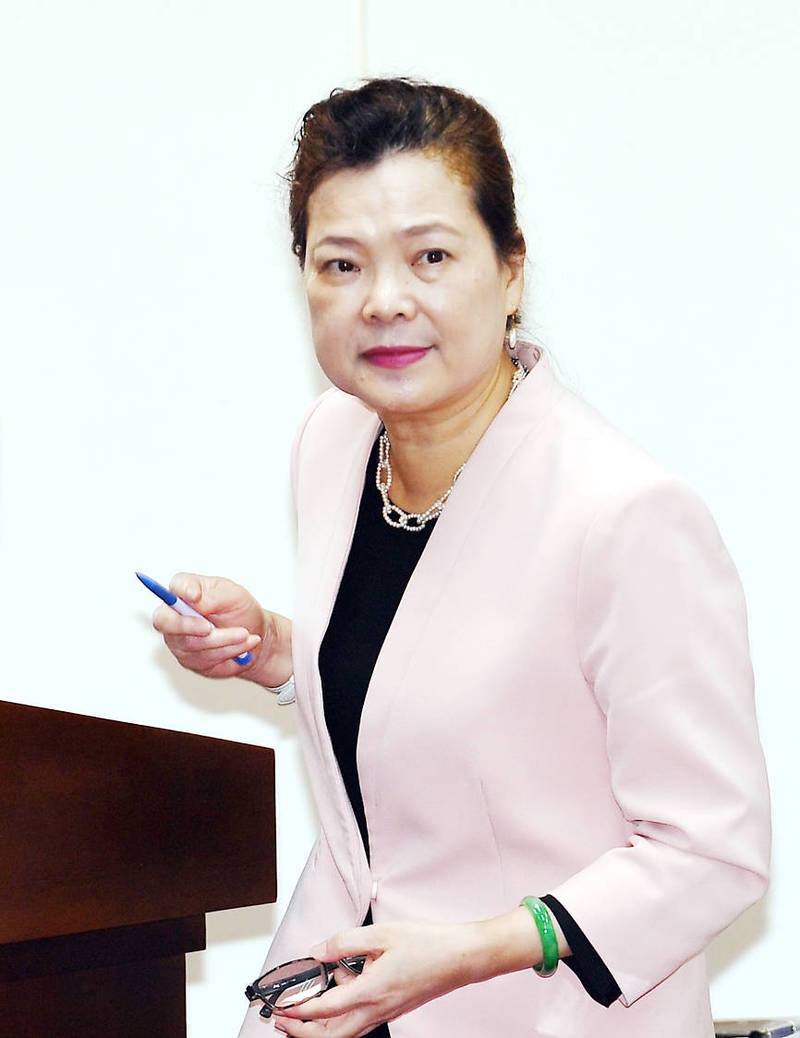《TAIPEI TIMES》 Taiwan will find its own way: minister

Minister of Economic Affairs Wang Mei-hua attends a meeting of the legislature’s Economics Committee in Taipei yesterday. Photo: CNA
‘SENSITIVE ITEMS’: The WTO’s Informational Technology Agreement ensures that more than half of Taiwan’s exports are tariff-free, the minister of economics said
By Angelica Oung / Staff reporter
Taiwan will find its own way, despite not being a part of the Regional Comprehensive Economic Partnership (RCEP), Minister of Economic Affairs Wang Mei-hua (王美花) said yesterday.
Fifteen Asia-Pacific nations — the 10 ASEAN members, as well as Australia, China, Japan, New Zealand and South Korea — signed the trade deal on Sunday. The members together account for about one-third of the world’s GDP.
Responding to media reports that Taiwan would be left “out in the cold” or “marginalized economically” after the signing of the RCEP, Wang said the effects of the deal would not be “overwhelming” or “immediate.”
“After going through the details it seems that the level of trade liberalization with the RCEP is relatively low,” Wang said. “We do not think it will have a large impact on Taiwanese businesses in the short term.”
“However, of course, we will communicate as soon as possible with business leaders in affected industries to figure out how to improve our competitiveness,” she said.
The local industries that are most likely to be affected are steel, petrochemicals, machinery and textiles, Wang said.
Although subsidies are not being considered, the ministry is open to “helping Taiwanese businesses with research and development,” she said.
The impact of the RCEP is lessened by the fact that many of the signatory nations already have free-trade agreements (FTAs) in place, and many “sensitive items” are not included in the list of goods affected by the deal, Wang said.
“Most of the ASEAN countries already have FTAs with Japan, South Korea and China, and the RCEP does not go far beyond those FTAs in terms of cutting tariffs,” she said. “The bigger deal is, with the RCEP, China and Japan now effectively have an FTA, as do South Korea and Japan.”
Wang said that some items “sensitive to Taiwan,” such as machine tools and upstream materials for nylon fabric, were not liberalized.
“Some of the items we find sensitive are also sensitive to China,” Wang added.
She said that it would have been politically insupportable for Taiwan to try and gain entry into the Beijing-driven RCEP.
“If we had pursued our inclusion in [the RCEP], we would have required the consent of all the countries, including China,” Wang said. “As a condition, China would have certainly demanded that Taiwan agree to the ‘1992 consensus.’ Is this something our people can live with?”
Citing the strength of Taiwanese manufacturers, Wang said Taiwan would strive to participate in other trade deals, including the Comprehensive and Progressive Agreement for Trans-Pacific Partnership.
“We are still protected by the Informational Technology Agreement under the WTO, and this ensures that more than half of our exports are tariff-free,” she said.
“When one path is blocked off, we will find another way through,” Wang added.
The “1992 consensus” — a term former Mainland Affairs Council chairman Su Chi (蘇起) in 2006 admitted making up in 2000 — refers to a tacit understanding between the Chinese Nationalist Party (KMT) and the Chinese Communist Party that both sides acknowledge there is “one China,” with each side having its own interpretation of what “China” means.
新聞來源:TAIPEI TIMES
















